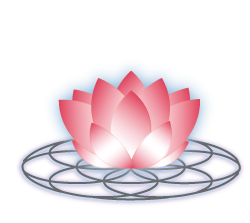I’ve had quite a few people (patients and friends) come to me talking about how they have issues with their scalp. Their scalps are dry and flacking, some of them even ooze once in a while, if they’re picking at the spots. When I was in Toronto, I also had issues with my scalp. I found out that I had Seborrheic dermatitis, and I felt gross and embarrassed to have it. It was itchy, and I would admittedly pick at it, causing it to ooze - which again made me feel gross and embarrassed.
It was around this time, that I learned about a study by Hay, et al, that was done to help support people with alopecia recover some of their hair. I found this interesting and decided to turn it into a mask to use for myself. I used this mask 1 a week, and I would leave it in my hair overnight, and wash it out with a scalp rinse the morning after. This became a routine for a while, then before I knew it, my scalp was back to being nice and healthy.
Hair Mask
Bottle that you can squeeze
Olive oil - contains essential fatty acids that can hydrate your scalp
Castor oil - contains essential fatty acids that can hydrate your scalp and ricinoleic acid reduces water loss through the skin
Rosemary essential oil - has anti-inflammatory, and antioxidant properties, it also promotes microcapillary perfusion, which can allow better blood flow to the area and improve hair growth
Lavender essential oil - has antioxidant, and anti-inflammatory properties, encourages hair growth, and accelerates cell turnover and wound healing
Thyme essential oil - has antimicrobial, antibiofilm action, and stimulates blood flow to address any imbalances in the flora on your scalp
Cedar essential oil - antioxidant and antibacterial. It also increases DHEA-S (which is considered the mother of sex hormones because it is a precursor to a number of them)and supports brain health when used as aromatherapy
Direction:
Fill 1/4-1/3 of your bottle with castor oil. This is a very thick oil, and also very good for your scalp and hair. You don’t want to add too much because of how thick it is, causing it to potentially be difficult to wash out
Fill the rest with olive oil
Add 5-10 drops of Rosemary, Lavender, Thyme, and Ceder essential oil. You may have to add less or more depending on the size of the bottle and the sensitivity of your scalp.
Mix the solution.
Pour some of the solution on your clean fingertips, and massage this mask into your scalp.
Cover your head with something to encourage the moisture to stay on your scalp, and if you’re sleeping with it, you may want to sleep with an additional toque or towel on your pillow to protect it from oil stains.
Wash out when you wake up.
Hair Rinse
Ingredients:
Squeezable bottle or spray bottle
Apple cider vinegar - cleanses hair of product and oil, balances skin pH, stimulates circulation, and makes your hair silky soft
Rosemary essential oil - has anti-inflammatory, and antioxidant properties, it also promotes microcapillary perfusion, which can allow better blood flow to the area and improve hair growth
Water
Directions:
Fill your bottle up 1/4-1/3 with apple cider vinegar
Fill the rest with water
Add 10-20 drops of essential oil. You may have to add less or more depending on the size of the bottle and the sensitivity of your scalp.
1-2 times a week, carefully massage the solution onto your scalp. Be careful to not get any of this in your eyes. Keep the solution on your scalp for 1-2 minutes before washing your hair as usual.
Note: If you do have open wounds, this will sting. You may want to wait until those have healed up before doing this.
The hair rinse in particular is great if you’re noticing you’re getting acne on your scalp, though I do like the combination because the oils can be really nourishing and hydrating to the scalp. So if you’re experiencing flakiness or dandruff, I highly recommend trying these out.
~Dr. Charmagne
Citations:
Hay IC, Jamieson M, Ormerod AD. Randomized trial of aromatherapy. Successful treatment for alopecia areata. Arch Dermatol. 1998 Nov;134(11):1349-52. doi: 10.1001/archderm.134.11.1349. PMID: 9828867.
Panahi Y, Taghizadeh M, Marzony ET, Sahebkar A. Rosemary oil vs minoxidil 2% for the treatment of androgenetic alopecia: a randomized comparative trial. Skinmed. 2015 Jan-Feb;13(1):15-21. PMID: 25842469.
Lee BH, Lee JS, Kim YC. Hair Growth-Promoting Effects of Lavender Oil in C57BL/6 Mice. Toxicol Res. 2016 Apr;32(2):103-8. doi: 10.5487/TR.2016.32.2.103. Epub 2016 Apr 30. PMID: 27123160; PMCID: PMC4843973.
Ben Djemaa FG, Bellassoued K, Zouari S, El Feki A, Ammar E. Antioxidant and wound healing activity of Lavandula aspic L. ointment. J Tissue Viability. 2016 Nov;25(4):193-200. doi: 10.1016/j.jtv.2016.10.002. Epub 2016 Oct 5. PMID: 27769632.
Kowalczyk A, Przychodna M, Sopata S, Bodalska A, Fecka I. Thymol and Thyme Essential Oil-New Insights into Selected Therapeutic Applications. Molecules. 2020 Sep 9;25(18):4125. doi: 10.3390/molecules25184125. PMID: 32917001; PMCID: PMC7571078.
N by Nebraska Medicine. University Health Center. Is apple cider vinegar good for your skin and hair? https://health.unl.edu/apple-cider-vinegar-good-your-skin-and-hair
Matsubara E, Tsunetsugu Y, Ohira T, Sugiyama M. Essential Oil of Japanese Cedar (Cryptomeria japonica) Wood Increases Salivary Dehydroepiandrosterone Sulfate Levels after Monotonous Work. Int J Environ Res Public Health. 2017 Jan 21;14(1):97. doi: 10.3390/ijerph14010097. PMID: 28117719; PMCID: PMC5295347.
Huang K, Liu R, Zhang Y, Guan X. Characteristics of two cedarwood essential oil emulsions and their antioxidant and antibacterial activities. Food Chem. 2021 Jun 1;346:128970. doi: 10.1016/j.foodchem.2020.128970. Epub 2021 Jan 1. PMID: 33422919.


